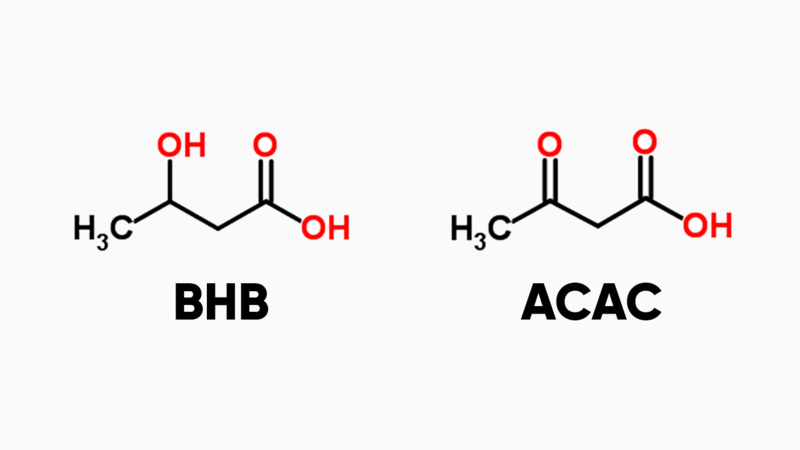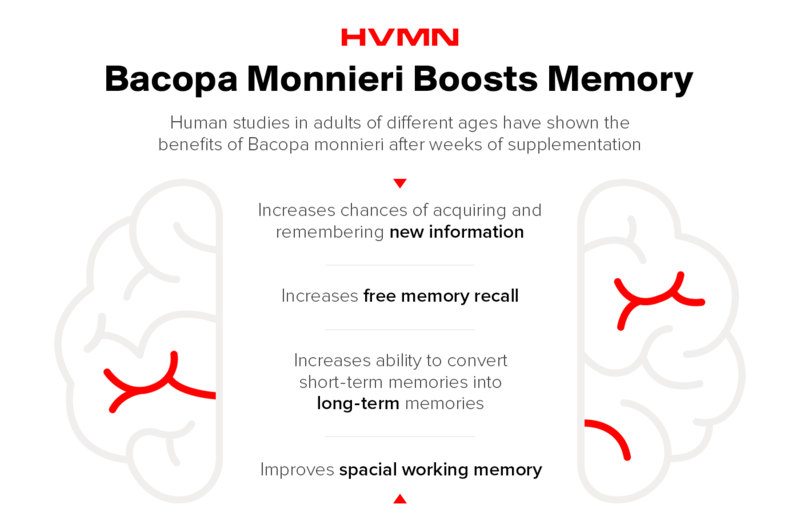What are Exogenous Ketones?
2.26K
0
·
2019/09/08
·
5 mins read
☕
WriterShelf™ is a unique multiple pen name blogging and forum platform. Protect relationships and your privacy. Take your writing in new directions. ** Join WriterShelf**
WriterShelf™ is an open writing platform. The views, information and opinions in this article are those of the author.
Article info
Categories:
⟩
⟩
Tags:
Date:
Published: 2019/09/08 - Updated: 2020/01/23
Total: 1089 words
Like
or Dislike
More from this author
More to explore












Edited from HVMN by Justin Liau and Nate Martins.
Exogenous ketones come from a synthetic source–they are not produced in the body. Those are endogenous ketones, produced by the body during fasting, or while following a ketogenic diet–but this can take weeks or months.
With the advent of exogenous ketones, scientists have developed a way to raise ketone levels significantly and safely without the need to fast or diet.
Emerging research shows moderate levels of ketones can increase health and performance.
Exogenous ketones provide the body with another fuel to employ. Think about it like an electric car that runs on both gas and electricity: by consuming ketones along with carbohydrates, the body will preferentially burn the ketones first, saving the carbohydrates for later. Exogenous ketones allow us to enter a metabolic state that wouldn't occur naturally: the state of having full carbohydrate stores, as well as elevated ketones in the blood. This could be advantageous to athletes looking to boost their physical performance.
Consuming exogenous ketones isn't the same as following a ketogenic diet–the ketones in the blood haven't been naturally produced by the breakdown of fat stores. However, scientists believe many of the health benefits of the keto diet and fasting (aside from weight loss) are triggered by ketones. Therefore, raising ketone levels through either endogenous or exogenous ketosis could help to improve health and performance by:
Reducing inflammation: ketones reduce activation of inflammatory processes1
Reducing oxidative stress: ketones scavenge harmful reactive oxygen species2
Metabolic flexibility: Affecting gene expression and cellular processes associated with brain health and longevity
Disadvantages
Ketone salts can cause gastrointestinal issues, especially at high doses
Most ketone salts are a mixture of the two optical isoforms of BHB (D- and L-). Human metabolism of L-BHB has not been studied, although it does not appear to be metabolized as rapidly as D-BHB5
Many of the ketone salts currently available are not considered FDA GRAS (generally regarded as safe)
Choosing an Exogenous Ketone
When considering ketone supplements, it's imperative to consider:
The impact on blood ketone levels and the resulting level of ketosis
The quality of the supplement and what impurities it may contain (like sugar, MCT powder or caffeine)
The importance of your overall experience. Do you care about price, taste, side effects, etc.?
Exogenous ketones are a new and exciting technology. They may give some of the benefits of ketosis without having to follow a ketogenic diet to trigger ketone production. Further research is required to fully understand how exogenous ketones affect performance, recovery and cognitive ability–but the early results are promising.
Scientific Citations
1.
Volek, J.S., Phinney, S.D., Forsythe, C.E., Quann, E.E., Wood, R.J., Puglisi, M.J., Kraemer, W.J., Bibus, D.M., Fernandez, M.L., and Feinman, R.D. (2008). Carbohydrate Restriction has a More Favorable Impact on the Metabolic Syndrome than a Low Fat Diet. Lipids 44, 297-309.
2.
Shimazu, T., Hirschey, M.D., Newman, J., He, W., Shirakawa, K., Le Moan, N., Grueter, C.A., Lim, H., Saunders, L.R., Stevens, R.D., Newgard, C.B., Farese Jr, R.V., De Cabo, R., Ulrich, S., Akassoglou, K., and Verdin, E. (2013). Suppression of oxidative stress by β-hydroxybutyrate, an endogenous histone deacetylase inhibitor. Science 339, 211-214.
3.
Yue Qiao, Zhaohua Gao, Yong Liu, et al., “Breath Ketone Testing: A New Biomarker for Diagnosis and Therapeutic Monitoring of Diabetic Ketosis,” BioMed Research International, vol. 2014, Article ID 869186, 5 pages, 2014. doi:10.1155/2014/869186
4.
Strazzullo, P., D'Elia, L., Kandala, N.B., and Cappuccio, F.P. (2009). Salt intake, stroke, and cardiovascular disease: meta-analysis of prospective studies. BMJ 339, b4567.
5.
Stubbs, B.Cox, P.; Evans, R.; Santer, P.; Miller, J.; Faull, O.; Magor-Elliott, S.; Hiyama, S.; Stirling, M.; Clarke, K. (2017). On the metabolism of exogenous ketones in humans. Front. Physiol.
6.
Ari, C., Kovács, Z., Juhasz, G., Murdun, C., Goldhagen, C.R., Koutnik, A.P., Poff, A.M., Kesl, S.L., and D’Agostino, D.P. (2016). Exogenous Ketone Supplements Reduce Anxiety-Related Behavior in Sprague-Dawley and Wistar Albino Glaxo/Rijswijk Rats. Front. Mol. Neurosci. 9, 137.
7.
Caminhotto, R.d.O., Komino, A.C.M., de Fatima Silva, F., Andreotti, S., Sertié, R.A.L., Boltes Reis, G., and Lima, F.B. (2017). Oral β-hydroxybutyrate increases ketonemia, decreases visceral adipocyte volume and improves serum lipid profile in Wistar rats. Nutr. Metab. 14, 31.
8.
Rodger, S., Plews, D., Laursen, P., and Driller, M. (2017). The effects of an oral β-hydroxybutyrate supplement on exercise metabolism and cycling performance.
9.
O’Malley, T., Myette-Cote, E., Durrer, C., and Little, J.P. (2017). Nutritional ketone salts increase fat oxidation but impair high-intensity exercise performance in healthy adult males. Applied Physiology, Nutrition, and Metabolism, 1-5.
10.
Clarke, K., Tchabanenko, K., Pawlosky, R., Carter, E., Todd King, M., Musa-Veloso, K., Ho, M., Roberts, A., Robertson, J., Vanitallie, T.B., et al. (2012). Kinetics, safety and tolerability of (R)-3-hydroxybutyl (R)-3-hydroxybutyrate in healthy adult subjects. Regul. Toxicol. Pharmacol. 63, 401-408.
11.
Cox, P.J., Kirk, T., Ashmore, T., Willerton, K., Evans, R., Smith, A., Murray, Andrew J., Stubbs, B., West, J., McLure, Stewart W., et al. (2016). Nutritional Ketosis Alters Fuel Preference and Thereby Endurance Performance in Athletes. Cell Metabolism 24, 1-13.
12.
Shivva, V., Cox, P.J., Clarke, K., Veech, R.L., Tucker, I.G., and Duffull, S.B. (2016). The Population Pharmacokinetics of d-β-hydroxybutyrate Following Administration of (R)-3-Hydroxybutyl (R)-3-Hydroxybutyrate. The AAPS journal, 1-11.
13.
Vandoorne, T., De Smet, S., Ramaekers, M., Van Thienen, R., De Bock, K., Clarke, K., and Hespel, P. (2017). Intake of a Ketone Ester Drink during Recovery from Exercise Promotes mTORC1 Signaling but Not Glycogen Resynthesis in Human Muscle. Front. Physiol. 8, 310.
14.
Holdsworth, D.A., Cox, P.J., Kirk, T., Stradling, H., Impey, S.G., and Clarke, K. (2017). A Ketone Ester Drink Increases Postexercise Muscle Glycogen Synthesis in Humans. Med Sci Sports Exerc.
15.
Murray, A.J., Knight, N.S., Cole, M.A., Cochlin, L.E., Carter, E., Tchabanenko, K., Pichulik, T., Gulston, M.K., Atherton, H.J., Schroeder, M.A., et al. (2016). Novel ketone diet enhances physical and cognitive performance. FASEB J.
16.
Leckey, J.J., Ross, M.L., Quod, M., Hawley, J.A., and Burke, L.M. (2017). Ketone Diester Ingestion Impairs Time-Trial Performance in Professional Cyclists. Front. Physiol. 8, 806.
17.
Birkhahn RH, Border JR.Intravenous feeding of the rat with short chain fatty acid esters. II. Monoacetoacetin. Am J Clin Nutr. 1978 Mar;31(3):436-41.
18.
Desrochers, S., David, F., Garneau, M., Jette, M., and Brunengraber, H. (1992). Metabolism of R-1,3-Butanediol and S-1,3-Butanediol in Perfused Livers from Meal-Fed and Starved Rats. Biochem. J. 285, 647-653.
19.
D'Agostino, D.P., Pilla, R., Held, H.E., Landon, C.S., Puchowicz, M., Brunengraber, H., Ari, C., Arnold, P., and Dean, J.B. (2013). Therapeutic ketosis with ketone ester delays central nervous system oxygen toxicity seizures in rats. Am. J. Physiol. Regul. Integr. Comp. Physiol. 304, R829-836.